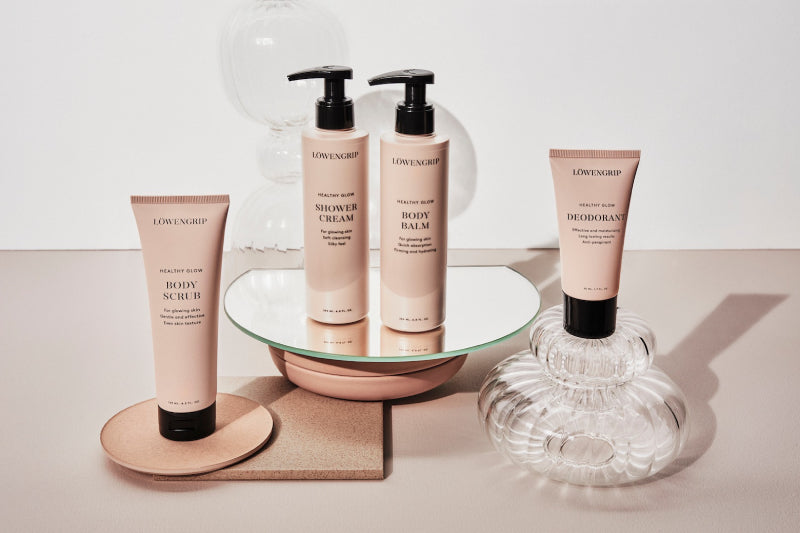SAFE UNDER THE SUN
It’s mid-july. The long awaited, gentle rays of sun are finding their way through every inch of the city. You can feel it in the air, tell by the blooming trees and hear it in the chirping of the cheerful summer birds. The city is sleepless, and no longer confined by the mundane rhythm of office hours, early weekday mornings, and sharp deadlines. In the sheer enjoyment of those long awaited rays of sun, one loses themself in the instant gratification of that sun-kissed tan and soothing dopamine high. You know it’s harmful, but instead of applying that layer of sunscreen, you order yet another guava smoothie and decide it’s time to flip sides to tan your back. SPF? That can wait.

The dark side
We know. The first thing you think of when you finally get to see the sun after many months of darkness is that you should indulge in it, not shield yourself from it. There is no doubt that a moderate dose of sunlight is good for you, even essential to your well-being. But excessive sun exposure can lead to a number of health concerns, such as skin cancer, premature ageing and suppression of the immune system and natural defense mechanisms of the skin.
Maybe this isn’t all news to you, but the fact that our hair also takes damage of sun exposure is sometimes overlooked. Yet, every August, you stare at the ends of your hair, wondering why they are so brittle. How did this happen? Well, the heat and rays of the sun do not only affect your skin, but your hair too, causing protein loss, dryness and eventually split ends. Using hair masks, leave-in treatments, heat protector with UV shield, and covering your hair is essential to avoid brittle and damaged hair during the summer time. The heat opens up your cuticles so you hair will absorb the moisture and shine of leave-in treatments and hair masks considerably faster.
The sunny side
A daily (and moderate) dose of sun exposure is proven to be essential to your health, and has mood-lifting benefits, while helping to prevent a number of illnesses, such as different kinds of cancers, heart disease and type 1 diabetes. Aside from being the main source of vitamin D, sun exposure boosts our body’s feel good hormone: serotonin. This, for many unheard of, magical hormone is the reason why you suddenly feel happier and more energetic during the sunny months of summer. A sensible amount of sun exposure also boosts your immune system, by producing more of the body’s natural defense shields, white blood cells. Ever wondered why you sleep better during the summer? That’s because the body creates more of the sleep inducing hormone, melatonin, which puts us to sleep faster and increases the quality of sleep.
Safe, sophisticated and sun-kissed
What is the formula for getting that perfect tan? For starters, you need to beware of the fact that using sunscreen doesn’t erase all the negative side effects of excess sun exposure, and that you shouldn’t use it as a means to staying in the sun for longer. While it does provide you with some protection and prevents sunburn, it doesn’t come with immortalizing superpowers.
It’s all about the (faux) glow
You no longer have to go on an expensive vacation to Italy, or sunbathe for hours in order to get that glowing sun-kissed look. Self-tanning is quicker, safer and can be just as effective as the real deal. Always use a peeling body scrub before any kind of tanning, to remove dead skin cells and get an even, long lasting result. Our new Luminous Bronze self tanning series gradually builds up a golden-brown tone, and is enriched with allantoin which gives a deep moisturizing effect.

Five tips from our very own skin therapist for getting that perfect (yet safe) tan
- Protect your hair - using a hair protecting spray that contains a solid UV shield is essential for to preventing damage, dryness and split ends.
- Tan touch-ups - Apply a layer of self-tanning body mist for a quick tan touch-up instead of that extra tanning session.
- Protect your face - use a day cream with high SPF and gently reapply during the day in order to prevent hyperpigmentation and premature aging.
- Skip the tan-acceleration products - A sunflower oil will not make your skin produce more melatonin. It’s just false marketing.
- Eat your SPF - Certain foods rich in antioxidants are known to boost you sun shield naturally by producing the body’s natural SPF: lycopene. Tomatoes and watermelon are great sources of lycopene.
To Luminous Bronze – Löwengrip (lowengrip.com)









